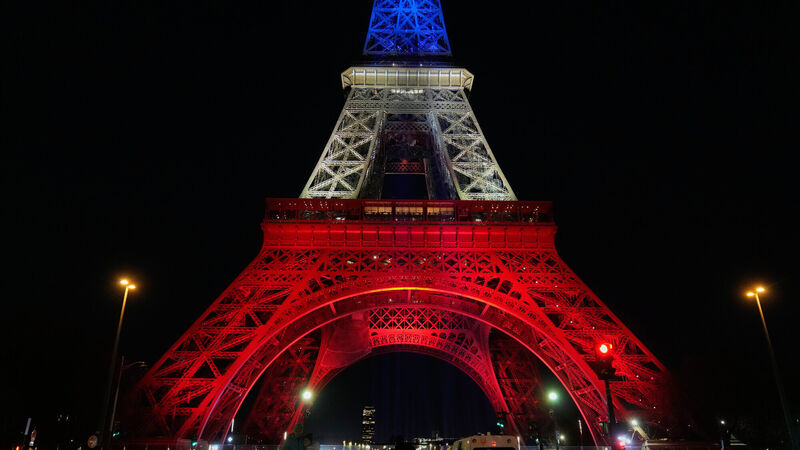France honours victims of Paris terror attacks 10 years on

The Eiffel Tower is lit in the colours of the French national flag in Paris (AP)
The French capital is marking the 10th anniversary of terrorist attacks that killed 132 people and injured hundreds more.
Coordinated terrorist attacks turned Paris into a theatre of blood and calamity 10 years ago, with gunfire on cafe terraces, explosions near a stadium and a night-time massacre at the Bataclan concert hall leaving 132 people dead and hundreds injured.











